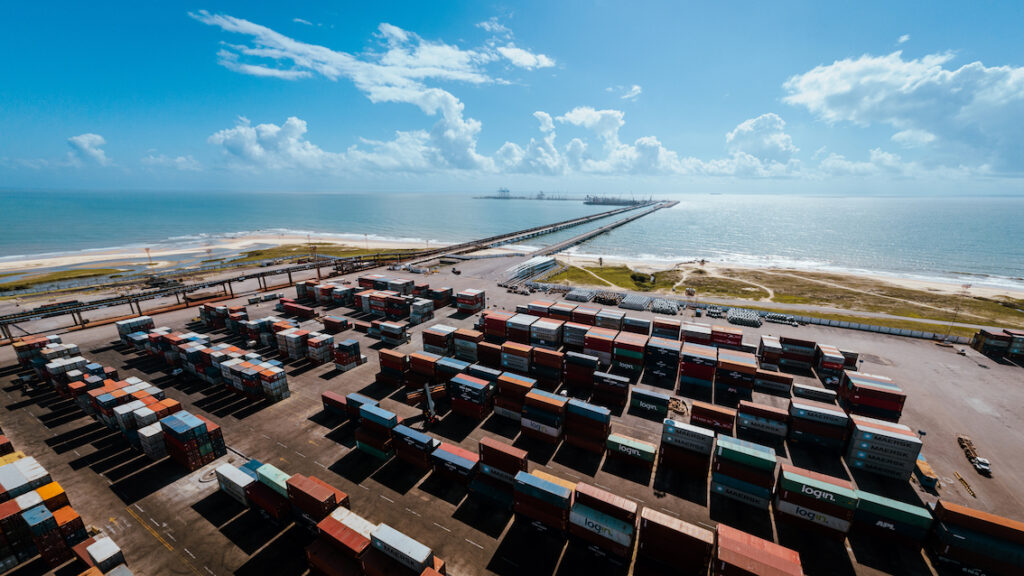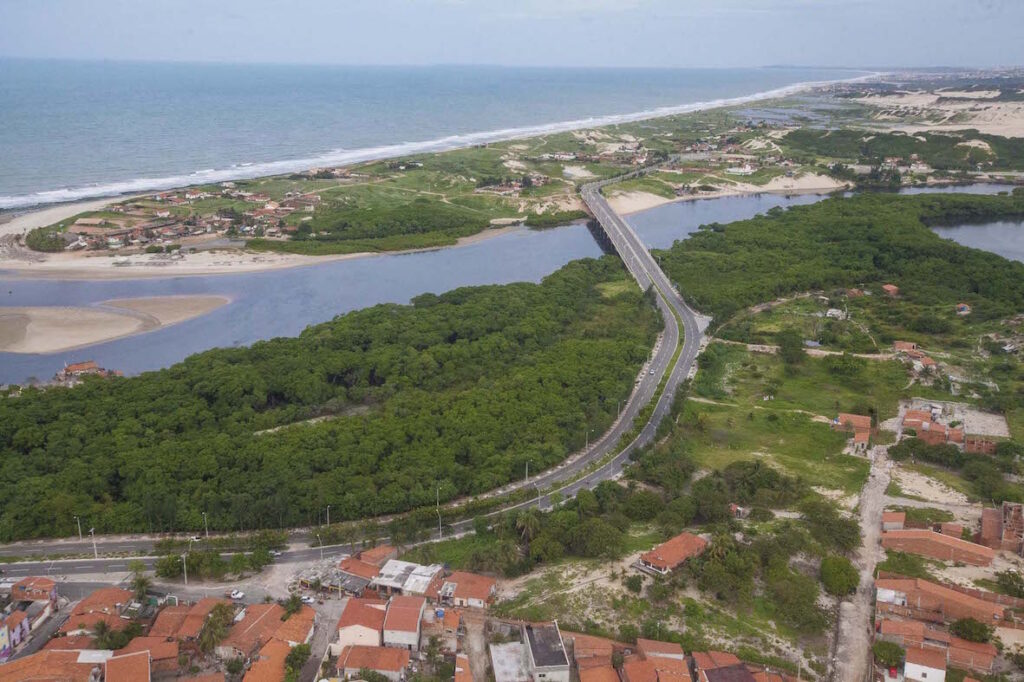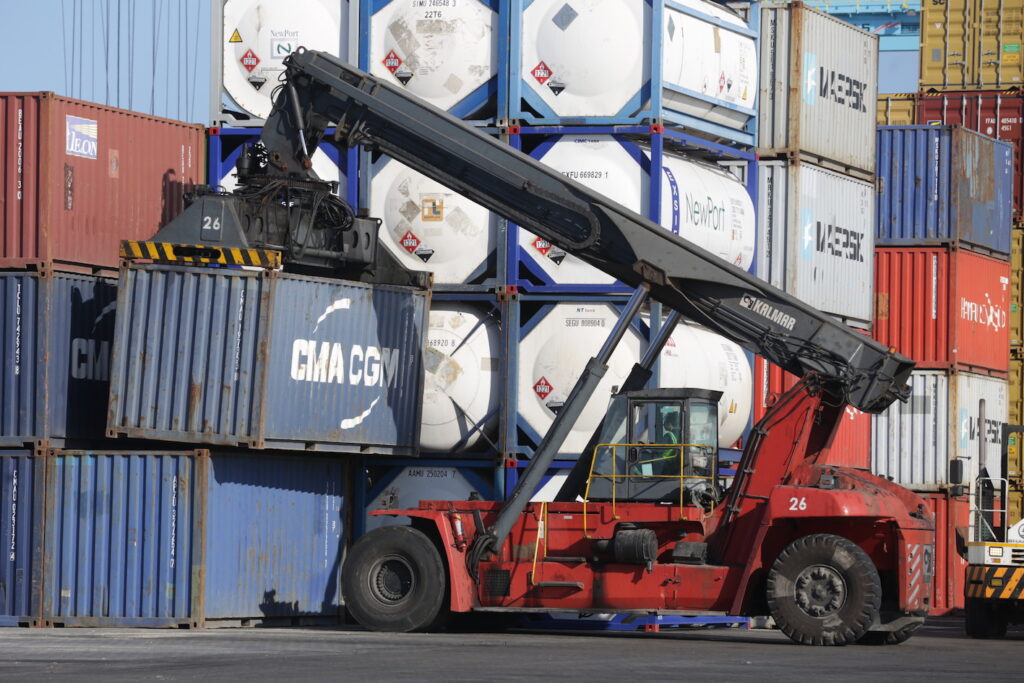Logistic and Infrastructure: Paths to growth

Over the last decades, Ceará has invested significantly in the expansion and modernization of its logistics and infrastructure, a key point in the economic production chain. Technically, logistics involves the integrated operation of supplies and distribution of products and services in a rationalized way, from the purchase of raw materials to the placement of the products to be effectively commercialized, including inventory and storage, which depends on infrastructure.
Besides having a significant impact on the competitiveness of all sectors of the economy and products produced and sold in a given region, logistics represents a strategic business of wealth generation, especially when we are talking about a state with a privileged geographical position, the so-called Atlantic Corner, as is Ceará.
Within this sector, the following segments are considered: Warehousing and Transportation; Auxiliary Activities; Mail and Delivery Activities; Infrastructure Works; Water Transport; Air Transport; Land Transport.
In view of these activities, Ceará, in its long-term plan, Ceará 2050, and in the medium-term plan for economic development, Ceará Veloz, emphasizes logistics as an essential element to raise the economic competitiveness and the average income of the population.
From the point of view of investor interest, the logistics sector can be analyzed under two aspects. The first relates to the logistics infrastructure available to perform its core activities. The second is related to the investment opportunities that the sector offers to companies wanting to be part of Ceará's logistics system.
Ceará's infrastructure
The State Competitiveness Ranking, prepared by the Center for Public Leadership (CLP), covers a series of competitiveness indicators for Brazilian states. In 2022, Ceará was ranked 13th in the Competitiveness of States ranking, being second among the Northeastern states.
In relation to the infrastructure pillar, one of the parameters that make up this competitiveness indicator, Ceará ranks 9th in 2022, rising two positions compared to 2021 and standing out as the second state in the Northeast with the best performance in this pillar.

In this pillar, we sought to compile indicators for the main infrastructure segments, such as highways, energy, and telecommunications. By including indicators for access, cost and quality of services linked to infrastructure, the pillar also sought to contemplate the different dimensions of the problem (trade-off situations) that affect the competitiveness of the States. In some cases, the biggest problem is the pure and simple absence of infrastructure; in other cases, the infrastructure exists, but is of poor quality; finally, there may still be cases where there is availability of good quality infrastructure, but with very high tariffs. In the composition of the pillar, the following indicators, among others, were considered: Quality of Telecommunications Service, Quality of Electricity, Quality of Roads, and Availability of Direct Flights.
Among the indicators in which Ceará stood out the most in 2022 are Electric Power Quality and Highway Quality. In both cases Ceará rose five positions in the ranking in relation to the 2021 report. Finally, it is worth highlighting the indicator for availability of direct flights, in which Ceará ranks 11th in the country, being the 3rd best state in the Northeast, which is consistent with the air hub as a development strategy for the state.
Highway infrastructure
In March 2022, the Government of Ceará presented the new 738 km highways covered by the Ceará de Ponta a Ponta (End-to-End) Program. It is about 900 million Reals (about 170 million dollars) applied in paving works for state highways, through new financing from the Inter-American Development Bank (IDB) and the Development Bank of Latin America (CAF), as well as funds from the State Treasury, aiming at the continuity of investments in highway infrastructure.
With the announced package, Ceará's road network will exceed 9,300 km in length. The works promoted by the Ceará from End-to-End Program will result in more highway integration, direct and indirect job generation, and greater safety and agility for the state's traffic. The new work package represents a direct impact on 62 municipalities; however, it benefits the entire state as it provides integration and adequate structure, improving the conditions for movement throughout the territory.
Besides the expansion of routes, the work of the Superintendence of Public Works (SOP), an autarchy of the State Government linked to the Secretary of Cities, includes maintenance and constant improvements in the road network.
Other projects in the road sector are yet to come. In September 2022, the Brazilian Senate approved authorization for the government of Ceará to contract a $150 million loan from the IDB. The investment will be used to partially finance the State Highway Infrastructure Improvement Program, the InfraRodoviária Ceará. One of the objectives is to recover degraded stretches and pave new highways. Opportunities for investors in the sector and more quality in the assurance of a good road infrastructure for companies installed in Ceará.
Railroads
The railroad system in Ceará is operated in conjunction with the Northeast network by the company Transnordestina Logística S.A - Ferrovia Transnordestina.
Ports
The Ceará ports followed the evolution of the Brazilian port sector, considering both ports, Mucuripe and Pecém. The Pecém Complex, located in the municipality of São Gonçalo do Amarante, about 60 kilometers from the city of Fortaleza, occupies an area of more than 19,000 hectares. Its goal is to become the main industrial complex, port, and logistics hub in Brazil by 2050.

In 2021, 410,557 TEUs (a unit referring to a 20-foot container) were handled at the port terminal in Ceará. A growth of 8.7% in relation to the movement in 2020, when 377,726 TEUs passed through the Port of Pecém.
According to the ranking of Brazilian ports and the Prata region, prepared by Datamar News, the Port of Mucuripe and Pecém were the ports that most increased their export volumes between 2020 and 2021, growing 54.55% and 22.87%, respectively.
Air transport
The Fortaleza International Airport is the largest in the state, handling more than 3 million passengers a year, and the Cariri Regional Airport in Juazeiro do Norte is the largest in the state's interior and one of the busiest in the Northeast. The Government of Ceará has registered 68 airports and airstrips. The Aracati Airport, with access to the east coast of the state, the Camocin Airport, with access to the west coast, and the Quixadá Airport, with access to the hinterland of Ceará, stand out for giving access to tourist regions. Other regional airports of note are the Sobral Airport and the Iguatu Airport.
Ceará's competitive advantages
- Strategic geographic position
- Proximity to the main western markets
- Geographic proximity to the Panama Canal, facilitating eastern markets
- Third largest region of influence in Brazil in terms of population, according to the IBGE study (Regions of Influence)
- Results in flight expansion - 60 international flights per week currently – expectation of expansion in the medium term
- Infrastructure of medium and small airports that connect Ceará to other states
- Cargo terminals close to production sources.
Ceará 2050: The Atlantic Corner
The State project for the long-term development of Ceará contemplates what it calls the Atlantic Logistic Strategic Program. Taking advantage of Ceará's privileged geographical location, it proposes the development of its logistical infrastructure by integrating modes, simplifying customs barriers and other improvements capable of boosting the Ceará economy.
The program's projects were structured analytically in four groups. Initially, actions are proposed to organize the sector to sustain the logistical activities to be explored, distributed in the groups "Study of vocations", "Infrastructure", "Qualification of Services" and "Partnerships - New Ventures".
Regarding the Study of Vocations, the program foresees the elaboration of a feasibility study on state and federal highway concessions and the elaboration of a study for coastal navigation in the Port of Pecém.
For Infrastructure, among other actions are: Undertake an economic feasibility study for the implementation of a cargo terminal at Cariri airport; Undertake a study for the expansion of the existing highway network for the flow of production in the different regions of Ceará; Conclude the Transnordestina railroad, in the access stretch to the Port of Pecém; Implement a port-industry (zoning for use and occupation and supply of infrastructure); upgrade the Mucuripe Port for coastal navigation and tourism; build intermodal cargo terminals in strategic regions of the state, aiming at improving transport logistics. Forecasted construction in CIPP, Cariri and Sobral (bonded warehouses also known as dry ports); Build the Metropolitan Arc that will surround the metropolitan region of greater Fortaleza, ensuring the integration with the Port of Pecém and facilitating agility in the flow of cargo and people (CE-155 from the junction of BR-116 to the meeting with BR-222; Undertake a study for the expansion of the existing railroad network for the flow of production in different regions of the state.
In Qualification of Services, the program contemplates, among other actions, to promote the integration of the ports of Mucuripe and Pecém, in order to create a strategic commercial corridor from Brazil to the East, via the Panama Canal; to create a special free trade zone to stimulate shopping tourism, taking advantage of the privileged location of Ceará.
And in Partnerships and New Enterprises, to expand and consolidate new air routes with national and international partnerships for the use of the airports of Jericoacoara, Juazeiro do Norte, Aracati and other regional airports, among other actions.
See here, on page 180, all the actions of the Atlantic Logistic Plan
Multimedia
Radio: Clayton Moreira, director of new business in Brazil and Latin America at Angola Cables
Radio: Igor Pontes, co-founder and CEO of Pesse LogTech
Live: Marcelo Maranhão, president of Setcarce (Union of Cargo Transport and Logistics Companies of Ceará), and Jurandir Picanço, consultant for the Federation of Industries of the State of Ceará
Live: Expedito Parente Jr., Director of Infrastructure and Heritage at Adece, and Airton Montenegro, consultant for Ceará 2050, architect and urban planner, partner at Urbi Consultores
Podcast: Adilson Benega, commercial and financial director of Unilink


